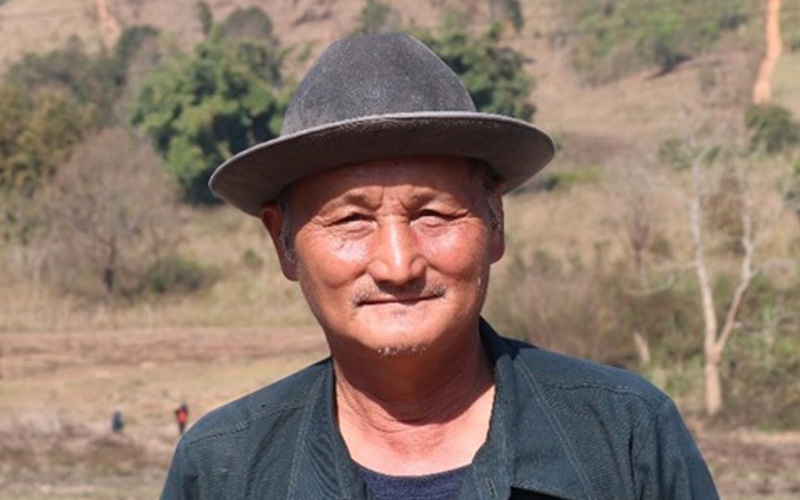
The global COVID-19 vaccine rollout continues to face challenges due to inequity and vaccine hesitancy.
But a new study found building trust through community-based solutions with people who have not been vaccinated, could help change their minds.
The study, Reaching the unreached through building trust: a mixed-method study on COVID-19 vaccination in rural Lao PDR, published today in BMJ Global Health, investigated the impact of the Laos Government’s intervention on vaccine acceptance in rural communities.
Researchers found positively boosting motivation and taking an active, relational approach to community engagement increased the likelihood of people getting their first COVID-19 vaccine by 6.9 times.
Jujia, leader of the Hmong clan in Buakop village, Pek district, said previously he had not wanted to get vaccinated because he had thought vaccines were only for young people.
“But then I talked with the team, and they gave me confidence,” he said.
“We want the vaccinators to first ask about our health, and when we have the information, they should give us the choice about whether to be vaccinated.
“After the first dose, I want the second and third doses now so I can travel.”
Successful methods of encouraging people to receive their COVID-19 vaccination included team-building activities with local officials and village leaders to build collaboration and create an equal environment, asking influential community members, such as ethnic or religious leaders, to advocate and share health information, and culturally sensitive messaging in local languages.
Dr Ketkesone Phrasisombath from the Lao People’s Democratic Republic (PDR) Department of Hygiene and Health Promotion at the Ministry of Health said one way of increasing the sense of ownership among people was to emphasise the importance of local information and to assist in finding solutions that were led by the community.
“This study has shown that very often the challenges are not due to cultural factors or belief systems – instead, they are associated with a lack of trust and inadequate communication,” he said.
According to the research, key drivers of vaccination hesitancy included mistrust due to rumours and past experiences, poor communication, and inconsistent messaging.
Burnet researcher and co-author of the paper Dr Sayaka Horiuchi said the intervention highlighted the importance of tailored, context-specific, two-way communication.
“A mistrust of healthcare providers and inadequate communication are major barriers to accessing health services in many places,” she said.
“The lessons learned from this study could be applied to other settings and contexts.”
The research was carried out in conjunction with the CONNECT Initiative, which is led by the Lao PDR Ministries of Health and Home Affairs and supported by the World Health Organization (WHO) and international partners, including the Korea Foundation for International Healthcare (KOFIH), USAID, the European Union, LuxDev, the Swiss Agency for Development and Cooperation (SDC) and Gavi.
Dr Shogo Kubota, the regional coordinator for mother and child health in the WHO Regional Office for the Western Pacific and a co-author of the research said the findings highlighted the significance of strong local governance and leadership by local authorities.
“A key factor in the increased vaccination rate was the involvement of government officials, which helped build confidence and motivation among community members,” he said.
“This shows how important it is to engage sectors beyond health for community wellbeing and sustainable changes.”
